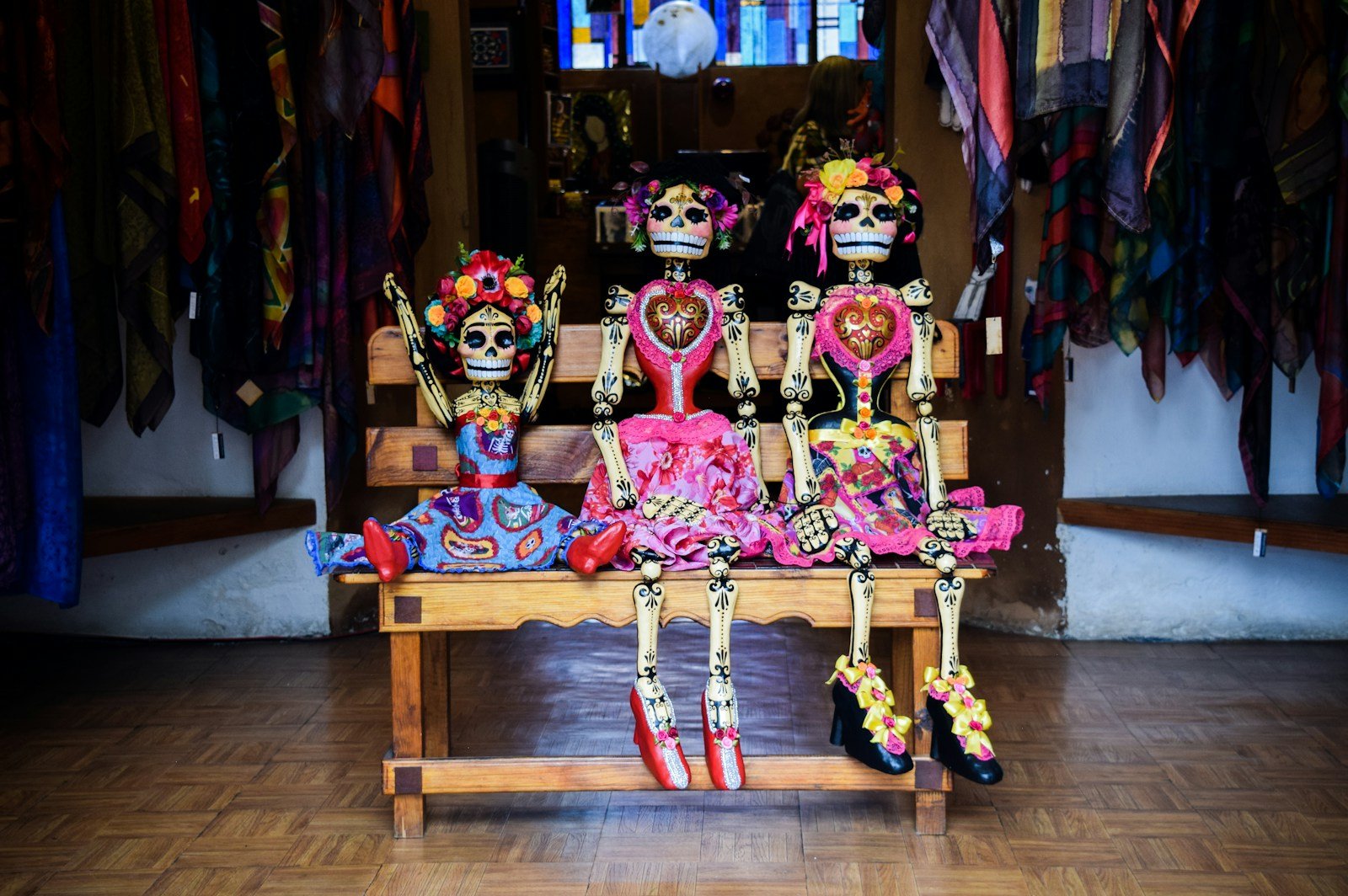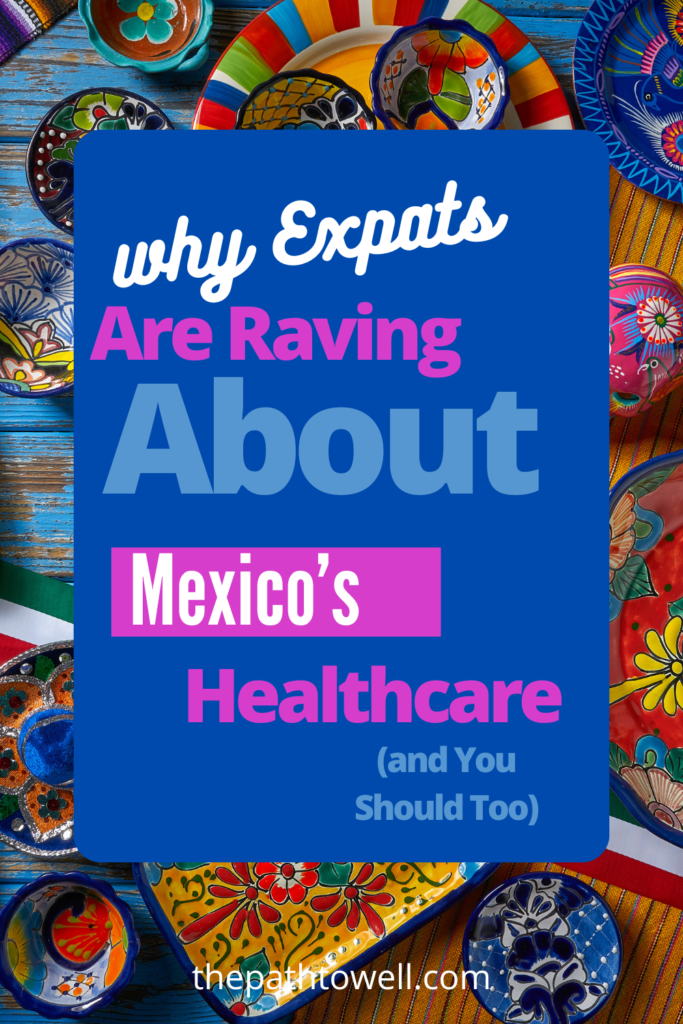

What if I told you that healthcare doesn’t have to cost you sleepless nights and half of your paycheck?
For years, as a nurse in the U.S., I witnessed patients breaking down—not just over diagnoses, but over the impossible costs of treatments.
I had a taste of this myself , a few years ago, when I needed a very costly, but necessary, surgery.
Thankfully, I had insurance that covered most of it.
But I had to literally FIGHT with my insurance to do so, and use my insider knowledge as a Case Manager (as well as threaten legal action), for them to do so.
And this was after pre-authorization!
It’s a no-brainer that, when I started planning my move abroad, one of my biggest concerns was, Would healthcare be accessible and high-quality?
Am I trading affordability for good care?
Spoiler alert: I wouldn’t be.
I started doing my research of countries with the best healthcare options and one place came up consistently among the top contenders.
Mexico.

The healthcare system in Mexico completely rewrote my understanding of what “affordable” and “comprehensive” care truly looks like.
I’m sharing five surprising things I learned about healthcare in Mexico from my personal and professional perspective as a nurse.
If you’re thinking of moving abroad—or simply curious about healthcare alternatives—read on.
1. Healthcare in Mexico Is Incredibly Affordable (Without Being Low-Quality)
Let’s start with the big elephant in the room: the cost.
As a nurse in the U.S., I’ve seen basic lab work leave patients with four-figure bills.
Guess what a doctor’s visit in Mexico can cost you?
Roughly the equivalent of **$25 USD**—and that includes a thorough consultation for a minor issue.
Prescription meds?
A fraction of what you’d pay in the States.
And here’s the kicker: you don’t need insurance for these prices.
Some of the main reasons healthcare is so affordable in Mexico:
– Less bureaucracy in the system.
– Medications are sold at market rates without massive inflation from pharmaceutical companies.
– Many doctors operate private practices, reducing overhead costs.
Here’s a quick comparison:
| Service | USA (No Insurance) | Mexico |
|---|---|---|
| General Check-Up | $150+ | $20-$40 |
| MRI Scan | $1,000+ | $400-$600 |
| Blood Work (Basic Panel) | $100-$200 | $30-$50 |
Now, before you roll your eyes thinking “affordable” means “cutting corners,”* let me assure you: many doctors and healthcare providers in Mexico are trained in the U.S. or Europe.
Based on the research I did, I was impressed not only by their qualifications but also by their genuine approach to care.
Check out some Facebook expat groups to see what some of the people say about their experiences.
You’ll be surprised about how overwhelmingly positive it is and how many say they will never come back to the US for their healthcare.
2. Private vs. Public Healthcare: A Dual System That Works
Mexico operates on a dual healthcare system, meaning you have both public and private options.
While public healthcare (IMSS and Seguro Popular) is available to residents, most expats tend to use private healthcare because:
1. Shorter wait times.
2. Access to a wider network of specialists.
3. Extra amenities—we’re talking private hospital rooms, personalized attention, and more.
Even with private healthcare, the costs are manageable.
You can choose to pay for an international health plan, but many expats simply pay per visit or procedure without insurance.
For major treatments, medical tourism packages can offer additional savings.
Critically, though, the public system is far from inadequate.
Mexico’s public hospitals are clean, staffed with skilled professionals, and easily accessible for residents.

The trade-off is usually a longer wait time, but that’s often adjusted by planning ahead.
3. Prescription Medications Are Over-The-Counter Friendly
Raise your hand if you’ve ever had to jump through hoops for a doctor’s note just to get ibuprofen stronger than 200 mg (hello, U.S. healthcare rules!).
In Mexico, many medications that require prescriptions in the States are available over-the-counter.
This was a revelation for me.
I’ve dealt with headaches, minor muscle strains, and allergies all year-round working 12-hour shifts as a nurse, so the ability to grab a stronger version of a painkiller or an antibiotic without a hassle is game-changing.
Of course, as with any self-medication, you need to be cautious and informed.
Pharmacists in Mexico are highly knowledgeable and happy to advise you about what medication fits your symptoms.
Think of them as your unofficial healthcare ally.
4. Medical Tourism Is Thriving—and for Good Reason

Did you know that Mexico consistently ranks as one of the top international destinations for medical tourism?
I’d heard whispers about people traveling to vibrant cities like Guadalajara or Cancún for everything from dental implants to cosmetic surgery.
I now understand why.
Here’s why medical tourism in Mexico is booming:
– World-Class Doctors: As mentioned earlier, many doctors are internationally certified.
– State-of-the-Art Facilities: Think JCI-accredited hospitals that rival facilities in the U.S. or Europe.
– Price Tags You’ll Actually Smile At: A dental crown that costs $3,000 in the U.S.? $500 in Mexico.
LASIK in Guadalajara, including the surgery, follow-up visits, and an Airbnb stay in 2023?
$1,200.
If you’re already living in Mexico, you have access to these savings regularly without the “tourism” piece.
Just another perk!
5. Healthcare Is Patient-Centered, Not Profit-Centered
Here’s what struck me most as both a nurse and a patient in Mexico: the care feels deeply personal.
Doctors take the time to get to know you.
I’ve heard of countless stories from expats living in Mexico about their experiences with the healthcare system there.
How their doctors sat with them for nearly 40 minutes, genuinely listening to not only their symptoms but theri backstory.

No one hurried them out of the room or rushed through an impersonal checklist.
How their doctor did house calls or called them personally to follow up on how they were doing.
As a nurse who’s spent years juggling more patients than anyone could handle during a single shift (hello, burnout!), this amazed me.
Additionally, there’s less pressure to aggressively “upsell” services.
You won’t find yourself being recommended unnecessary tests or procedures just to pad a hospital’s bottom line.
I watched one lady describe on TikTok how her physician in Mexico told her that she didn’t need a particular medication at that time, but recommended that she try a simple, “all-natural and holistic treatment first.”
And by the way, the treatment worked.
What You Should Know Before Using Healthcare in Mexico
While I’m singing Mexico’s praises, it’s good to be prepared for a few quirks:
– Language Barriers: Not all healthcare providers speak English, especially outside major cities. But many do, and translators are often available.
– Upfront Payments: Unlike the U.S. billing system, healthcare in Mexico often requires upfront payment in cash or card. If you’re using insurance, confirm reimbursements ahead of time.
– Varying Standards: While most private facilities are excellent, public hospitals can vary by region. Do your research before making a move.
Would I Recommend Healthcare in Mexico?
100% Yes.
As someone in the medical field, I was skeptical at first.
But I have been researching Mexico for a while now and it has opened my eyes to how practical, patient-focused, and refreshingly affordable healthcare can be.
If you’re contemplating moving abroad—or even just exploring healthcare alternatives—I’d urge you to give Mexico a closer look.
You might be surprised by what you find.
The Breakdown
In a world where healthcare can feel like a privilege instead of a right, Mexico offers clarity, comfort, and care without the heart-stopping price tags.
Whether you’re a nurse considering a life abroad or someone exploring better alternatives for your healthcare needs, the Mexican healthcare system deserves your attention.
What do you think?
Have you experienced healthcare in Mexico firsthand, or are you considering a move abroad?
Let me know in the comments—I’d love to hear about your journey (or your concerns).
—
Curious about moving abroad?
Don’t forget to check out my guide on “How I’m Planning My Move Abroad Without Breaking the Bank” for practical tips and insider advice!





